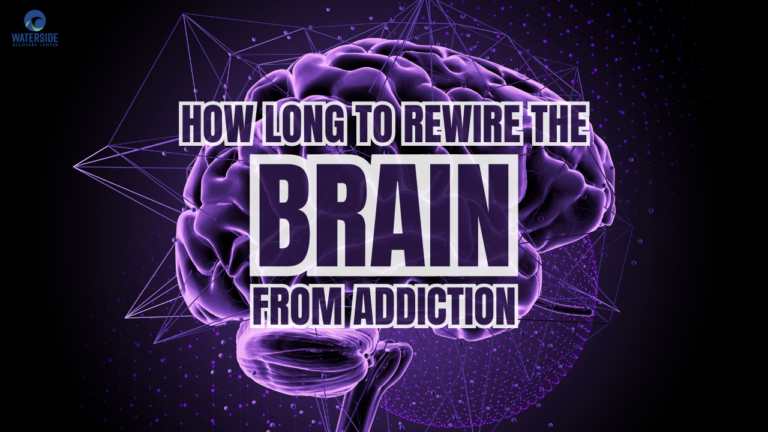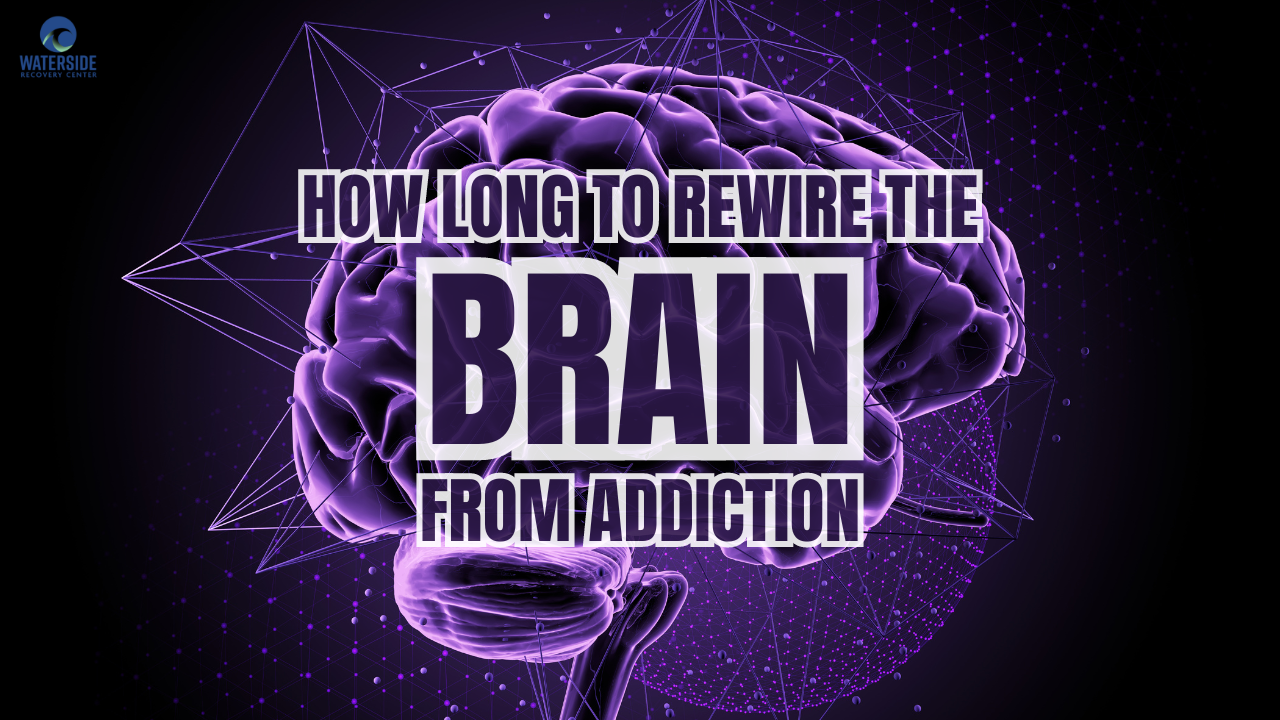
How Long Does it Take to Rewire the Brain from Addiction?
Addiction is a complex and chronic disease that affects millions of people worldwide. It is characterized by compulsive drug-seeking behavior despite the negative consequences that come with it. Addiction is a disease that affects the brain, and like any other chronic disease, it requires long-term management and treatment.
One of the most challenging aspects of addiction treatment is rewiring the brain to break the cycle of addiction. The brain changes in response to repeated drug use, and these changes can be long-lasting. The process of rewiring the brain from addiction can take time, and it varies from person to person. However, with the right treatment and support, it is possible to rewire the brain and overcome addiction.
Understanding Addiction and Brain Plasticity
The Role of Neurotransmitters in Addiction
Addiction is a chronic and complex brain disorder that affects millions of people worldwide. It is characterized by compulsive drug seeking and use despite harmful consequences. Addiction is believed to be caused by a combination of genetic, environmental, and behavioral factors.
Neurotransmitters are chemicals in the brain that are responsible for transmitting signals between neurons. They play a crucial role in addiction by regulating the brain’s reward system. Dopamine, a neurotransmitter, is particularly important in addiction as it is involved in the feelings of pleasure and reward that are associated with drug use.
Drug use can alter the levels of neurotransmitters in the brain, leading to changes in the reward system. With repeated drug use, the brain adapts to the new levels of neurotransmitters, leading to tolerance and dependence. This can make it difficult for individuals to quit using drugs, as their brain has become wired to seek out the drug to maintain normal functioning.
Neuroplasticity and Its Impact on Recovery
Neuroplasticity is the brain’s ability to change and adapt in response to experiences. It is a fundamental process that underlies learning and memory. In addiction, neuroplasticity can lead to changes in the brain that make it difficult for individuals to quit using drugs.
However, neuroplasticity can also be harnessed to promote recovery. With the right treatment and support, individuals can rewire their brains to overcome addiction. This involves creating new neural pathways that support healthy behaviors and coping mechanisms.
Treatment for addiction often involves a combination of medication and behavioral therapies. Medications can help to reduce cravings and withdrawal symptoms, while behavioral therapies can help individuals to develop new coping skills and behaviors. With time and practice, these new behaviors can become automatic, leading to long-term recovery.
The Process of Rewiring the Brain
Cognitive Behavioral Therapy (CBT)
Cognitive Behavioral Therapy (CBT) is a type of talk therapy that has been shown to be effective in treating addiction. CBT helps individuals identify negative thought patterns and behaviors and replace them with positive ones. In the case of addiction, CBT can help individuals identify triggers that lead to drug or alcohol use and develop coping mechanisms to deal with those triggers. CBT can also help individuals develop healthy habits and behaviors to replace their addictive behaviors.
Mindfulness and Meditation
Mindfulness and meditation are practices that involve focusing on the present moment and developing a non-judgmental awareness of one’s thoughts and feelings. These practices have been shown to be effective in reducing stress and anxiety, which can be triggers for addiction. Mindfulness and meditation can also help individuals develop a greater sense of self-awareness, which can help them identify their triggers and develop coping mechanisms.
Pharmacological Interventions
Pharmacological interventions, such as medication-assisted treatment (MAT), can also be effective in treating addiction. MAT involves using medication to help manage withdrawal symptoms and cravings. This can help individuals stay sober while they work on developing healthier habits and behaviors. MAT can also help reduce the risk of relapse.
Overall, the process of rewiring the brain from addiction involves a combination of therapies and interventions. CBT, mindfulness and meditation, and pharmacological interventions are just a few of the tools that can be used to help individuals overcome addiction and develop healthier habits and behaviors. With the right treatment and support, it is possible to rewire the brain and achieve lasting recovery.
Factors Influencing the Duration of Recovery
Severity and Duration of Addiction
The severity and duration of addiction can significantly influence the duration of recovery. Individuals who have been addicted to drugs or alcohol for a longer period of time may require a longer period of time to rewire their brain and overcome their addiction. Similarly, individuals who have a more severe addiction may require more time to recover.
Individual Differences and Genetics
Individual differences and genetics can also play a role in the duration of recovery. Some individuals may have a genetic predisposition to addiction, which can make it more difficult to overcome. Additionally, individuals with co-occurring mental health disorders may require longer treatment and recovery periods.
Support Systems and Environment
The support systems and environment in which an individual is recovering can also influence the duration of recovery. Individuals who have a strong support system, including family, friends, and healthcare professionals, may be more likely to successfully recover from addiction. Additionally, being in a safe and supportive environment, such as a rehabilitation center, can provide individuals with the resources and tools they need to overcome their addiction.
Overall, the duration of recovery from addiction can vary significantly based on individual factors such as severity and duration of addiction, genetics, and support systems and environment. It is important for individuals to seek out professional help and support to ensure a successful recovery.
| Factors Influencing Duration of Recovery |
|---|
| Severity and Duration of Addiction |
| Individual Differences and Genetics |
| Support Systems and Environment |
Strategies for Sustaining Long-Term Recovery
Maintaining long-term recovery from addiction can be challenging, but it is possible. Here are some strategies that can help individuals sustain their recovery:
1. Build a Support Network
Having a strong support network is crucial for individuals in recovery. This can include family, friends, support groups, and healthcare professionals. It is important to surround oneself with people who are supportive and understanding of one’s recovery journey.
2. Practice Self-Care
Self-care is essential for maintaining long-term recovery. This can include regular exercise, healthy eating, getting enough sleep, and practicing mindfulness or meditation. Taking care of oneself physically, mentally, and emotionally can help individuals stay on track with their recovery goals.
3. Avoid Triggers
Triggers are situations or people that can lead to a relapse. It is important for individuals in recovery to identify their triggers and avoid them whenever possible. This may mean avoiding certain places or people, or learning coping strategies to deal with triggers when they arise.
4. Set Realistic Goals
Setting realistic goals can help individuals stay motivated and focused on their recovery. It is important to set goals that are achievable and measurable. This can help individuals track their progress and celebrate their successes along the way.
5. Stay Connected with Treatment
Staying connected with addiction treatment is important for maintaining long-term recovery. This may include attending therapy sessions, support group meetings, or continuing with medication-assisted treatment. It is important to work with healthcare professionals to create a treatment plan that works best for the individual.
By following these strategies, individuals in recovery can increase their chances of sustaining long-term recovery from addiction.
At Waterside Recovery Centers we pride ourselves on providing the top addiction treatment in Massachusetts. With a range of evidence-based, client-focused and individualized treatment offerings, we are able to provide the ideal support for those seeking recovery from substance addiction. Please feel free to reach out to our help line at anytime.
(866)671-8620





